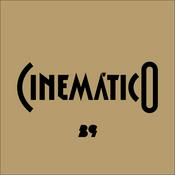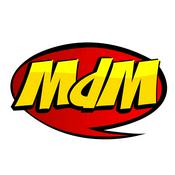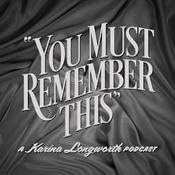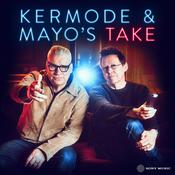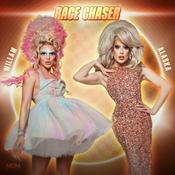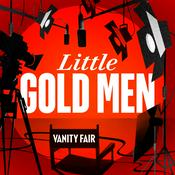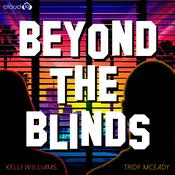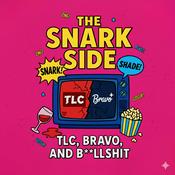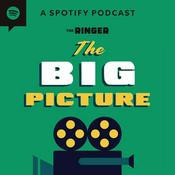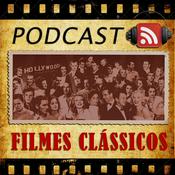58 episódios

Episode 12: Rosa von Praunheim's TRANSEXUAL MENACE
13/3/2025 | 36min
This month on the podcast, Liz and KJ return to the well that is Rosa von Praunheim's vast filmography to take a look at a film that (sadly) has been becoming more and more relevent with each passing day this year: his 1996 documentary TRANSEXUAL MENACE. A companion piece of sorts to his earlier ARMY OF LOVERS OR REVOLT OF THE PERVERTS (1979), the film is a sprawling portrait of America's trans arts and activist movement that features everything from icons like Leslie Feinberg and Virginia Prince to events like the Southern Comfort conference in Atlanta and the Fantasia Fair in Provincetown. We'll be presenting a rare screening of the documentary at IFC Center in New York on Thursday, March 13th at 7pm!

Episode 11: Richard Benner's OUTRAGEOUS!
26/2/2025 | 40min
Hello, welcome—and in the spirit of our neighbors to our north, bonjour bienvenue. In this month's episode, we discuss a film that almost defies belief: a highly popular and critically acclaimed queer film from the 1970s about a drag queen's ambitions for stardom and his tumultuous friendship with a mentally ill gal-pal—all produced through a deliberate and infamous loophole in the Canadian tax code. The story, and the film, is truly outrageous. Liz and KJ spend this episode discussing Richard Benner's true gem of a film OUTRAGEOUS!, including how it actually made its star Craig Russell an international drag superstar. They dive into the era of Canadian tax shelter films, and discuss why the kinda-genre doesn't entirely deserve its bad rap. Your hosts also consider the film's provocative advertising campaign, what made this film take off as the beloved and acclaimed film in its time versus other 70s gay films, and what issues may have kept this from being seen as a key moment in drag and queer film history. You can catch OUTRAGEOUS! at the IFC Center in Manhattan on Thursday, February 27 at 7PM. If you're in the New York City metro area, we'd love to see you there!

Episode 10: Gregg Araki's THREE BEWILDERED PEOPLE IN THE NIGHT (1987)
06/1/2025 | 46min
This month on the podcast, Liz and Keegan take a look at queer filmmaker Gregg Araki's first film. You might know it, it's about two HIV+ gay men on the run after killing a cop, who—oh, wait, no it's not THE LIVING END, it's Araki's actual first film, 1987's THREE BEWILDERED PEOPLE IN THE NIGHT. Shot for $5,000 with a crew of one and a wind-up Bolex, this no-budget wonder follows a gay performance artist, his video artist best friend, and her sexually confused photographer boyfriend, who fall into a disorienting bisexual love triangle over the course of a series of long dark nights in the coffee shops and bedrooms of Los(t) Angeles. Rarely screened theatrically and only ever released on VHS in Japan, THREE BEWILDERED PEOPLE IN THE NIGHT is a forgotten landmark of 80s queer cinema and a fascinating origin for one of the most beloved queer filmmakers of the past several decades. We'll be showing it TONIGHT at IFC Center in Manhattan at 7pm — it's the film's very first screening in New York in about a decade, so hope to see you there.

Episode 9: Arthur J. Bressan, Jr.'s DADDY DEAREST (1984)
09/12/2024 | 41min
What better way to wrap up the year than with a beautiful work of gay adult cinema from a still-underappreciated director? This month, Liz and KJ cover Arthur J. Bressan, Jr.'s DADDY DEAREST—an adult film about the making of an adult film that's just as dreamlike and wistful as is relentlessly horny. DADDY DEAREST isn't Bressan's most famous work—nowhere near as famous as his San Francisco adult films PASSING STRANGERS and FORBIDDEN LETTERS, the foundational documentary GAY USA, the controversial ABUSE, nor his crossover masterpiece BUDDIES—but it truly showcases Bressan's daring storytelling, clever cinematography, thoughtful editing, and spot-on casting. In this episode, we go through what we love about both Bressan and this film in particular: his love of film history; his talent for blending multiple realities, and his brilliance for representing unbridled desire and pleasure on film. We are screening DADDY DEAREST at the IFC Center on Monday, December 9, at 7pm, in a brand-new 2K restoration by Altered Innocence and the Bressan Project. If you love what you see and also live in New York City, make sure to also check out Adam Baran's Narrow Rooms series at Anthology Film Archives, where he will be screening another underrated Bressan feature, JUICE, on Saturday, December 14th.

Episode 8: Gordon Willis's WINDOWS (1980)
25/11/2024 | 47min
This month on Cruising the Movies, Liz and KJ take a look at what is undoubtedly one of the most controversial lesbian films ever made: cinematographer-turned-director Gordon Willis's 1980 film, Windows. Talia Shire stars as Emily, a mousy stutterer who endures a bizarre assault at the hands of a stranger after returning home from work one night. While she initially finds comfort and protection in poet Andrea (Elizabeth Ashley), she later comes to find out there's more to her friend than meets the eye. Over the course of the episode, we compare the final film to its radically different originaly screenplay and talk about how it fits in with the other three controversial queer New York films from 1980: Can't Stop the Music (dir. Nancy Walker), Cruising (dir. William Friedkin), and Dressed to Kill (dir. Brian De Palma). And if you're in the New York area, we'll be presenting a very rare 35mm screening of the film at IFC on Monday, November 24th at 7pm!
Mais podcasts de TV e cinema
Podcasts em tendência em TV e cinema
Sobre Cruising the Movies
Ouça Cruising the Movies, PeeWeeCast e muitos outros podcasts de todo o mundo com o aplicativo o radio.net
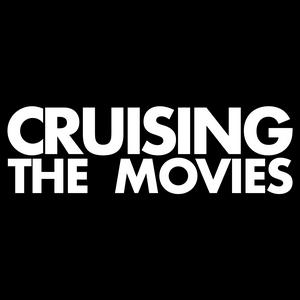
Obtenha o aplicativo gratuito radio.net
- Guardar rádios e podcasts favoritos
- Transmissão via Wi-Fi ou Bluetooth
- Carplay & Android Audo compatìvel
- E ainda mais funções
Obtenha o aplicativo gratuito radio.net
- Guardar rádios e podcasts favoritos
- Transmissão via Wi-Fi ou Bluetooth
- Carplay & Android Audo compatìvel
- E ainda mais funções


Cruising the Movies
baixe o aplicativo,
ouça.



